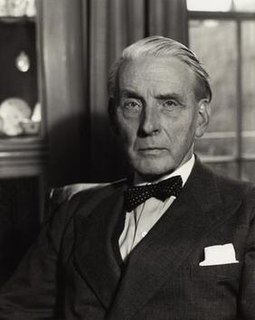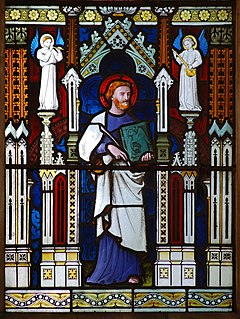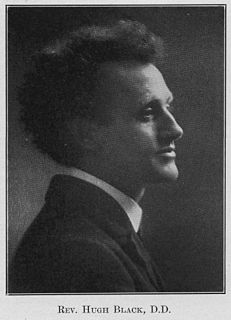A Quote by John Calvin
The happiness promised us in Christ does not consist in outward advantages-such as leading a joyous and peaceful life, having rich possessions, being safe from all harm, and abounding with delights such as the flesh commonly longs after. No, our happiness belongs to the heavenly life!
Related Quotes
One of the advantages of being born in an affluent society is that if one has any intelligence at all, one will realize that having more and more won't solve the problem, and happiness does not lie in possessions, or even relationships: The answer lies within ourselves. If we can't find peace and happiness there, it's not going to come from the outside.
When I look at what the world does and where people nowadays believe they can find happiness, I am not sure that that is true happiness. The happiness of these ordinary people seems to consist in slavishly imitating the majority, as if this were their only choice. And yet they all believe they are happy. I cannot decide whether that is happiness or not. Is there such a thing as happiness?
In our concern for others, we worry less about ourselves. When we worry less about ourselves an experience of our own suffering is less intense. What does this tell us? Firstly, because our every action has a universal dimension, a potential impact on others' happiness, ethics are necessary as a means to ensure that we do not harm others. Secondly, it tells us that genuine happiness consists in those spiritual qualities of love, compassion, patience, tolerance and forgiveness and so on. For it is these which provide both for our happiness and others' happiness.
Happiness does not consist in amusement. In fact, it would be strange if our end were amusement, and if we were to labor and suffer hardships all our life long merely to amuse ourselves.... The happy life is regarded as a life in conformity with virtue. It is a life which involves effort and is not spent in amusement.
No matter how many possessions we acquire, they will not provide us with any lasting happiness and freedom. On the contrary, it is often our pursuit of material possessions that causes our problems. If we want ultimate happiness and freedom from suffering, we must engage in the supreme practices of training the mind. There is no other way.
If happiness is a state of the inward life, we have to look for its chief obstructions not in outward conditions but in deeper places. Happiness depends in the last issue, as we saw, on the essential view of life. It is not a matter of distractions, nor even of mere pleasurable sensations. There may be an appearance of great prosperity with incurable sadness hidden at the heart, as there is an outward peace which is only a well-masked despair. The way to happiness is indeed harder than the way to success; for its chief enemies entrench themselves within the soul.
Let us be mindful of the foundational precepts our Heavenly Father has given to His children that will establish the basis of a rich and fruitful mortal life with promises of eternal happiness…. Brothers and sisters, diligently doing the things that matter most will lead us to the Savior of the world…. Let us make the changes necessary to refocus our lives on the sublime beauty of the simple, humble path of Christian discipleship—the path that leads always toward a life of meaning, gladness, and peace.
Comfort kills! If your goal in life is to be comfortable, I guarantee two things. First, you will never be rich. Second, you will never be happy. Happiness doesn't come from living a lukewarm life, always wondering what could have been. Happiness comes as a result of being in our natural state of growth and living up to our fullest potential.
Material possessions, in themselves, are good. We would not survive for long without money, clothing and shelter. We must eat in order to stay alive. Yet if we are greedy, if we refuse to share what we have with the hungry and the poor, then we make our possessions into a false god. How many voices in our materialist society tell us that happiness is to be found by acquiring as many possessions and luxuries as we can! But this is to make possessions into a false god. Instead of bringing life, they bring death.






































